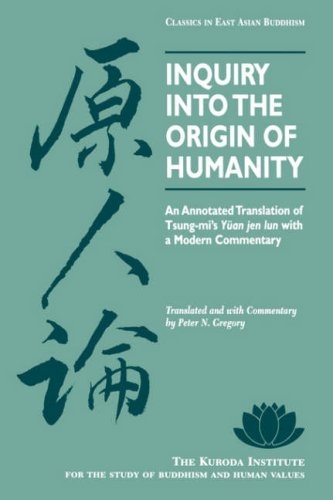Inquiry into the Origin of Humanity
This annotated translation of an early ninth-century essay by the Hua-yen and Ch'an master Kuei-feng Tsung-mi (780-841) provides the nonspecialist with a window through which to survey the landscape of medieval Chinese Buddhist thought. Unlike other more technical expositions of Buddhist teachings, Inquiry into the Origin of Humanity (Yuan Jen lun) does not presuppose a detailed knowledge of Buddhist doctrine. In a brief and accessible fashion, it presents a systematic overview of the major teachings within Chinese Buddhism. The organizational framework used by Tsung-mi, moreover, represents one of the primary methods devised by Chinese Buddhists to organize and make sense of the diverse body of teachings they received from India. Finally, Tsung-mi's essay is especially noteworthy in that it sheds light on the interaction of Buddhism with the indigenous intellectual and religious traditions of Confucianism and Taoism. Peter N. Gregory's commentary, which follows a running translation of the work, will help bridge the temporal and cultural gap separating contemporary Western readers from the text's intended medieval Chinese audience. (Source: back cover)
| Citation | Gregory, Peter N., trans. Inquiry into the Origin of Humanity: An Annotated Translation of Tsung-mi's Yüan jen lun with a Modern Commentary. Kuroda Classics in East Asian Buddhism. Honolulu: University of Hawai'i Press, 1995. |
|---|---|

